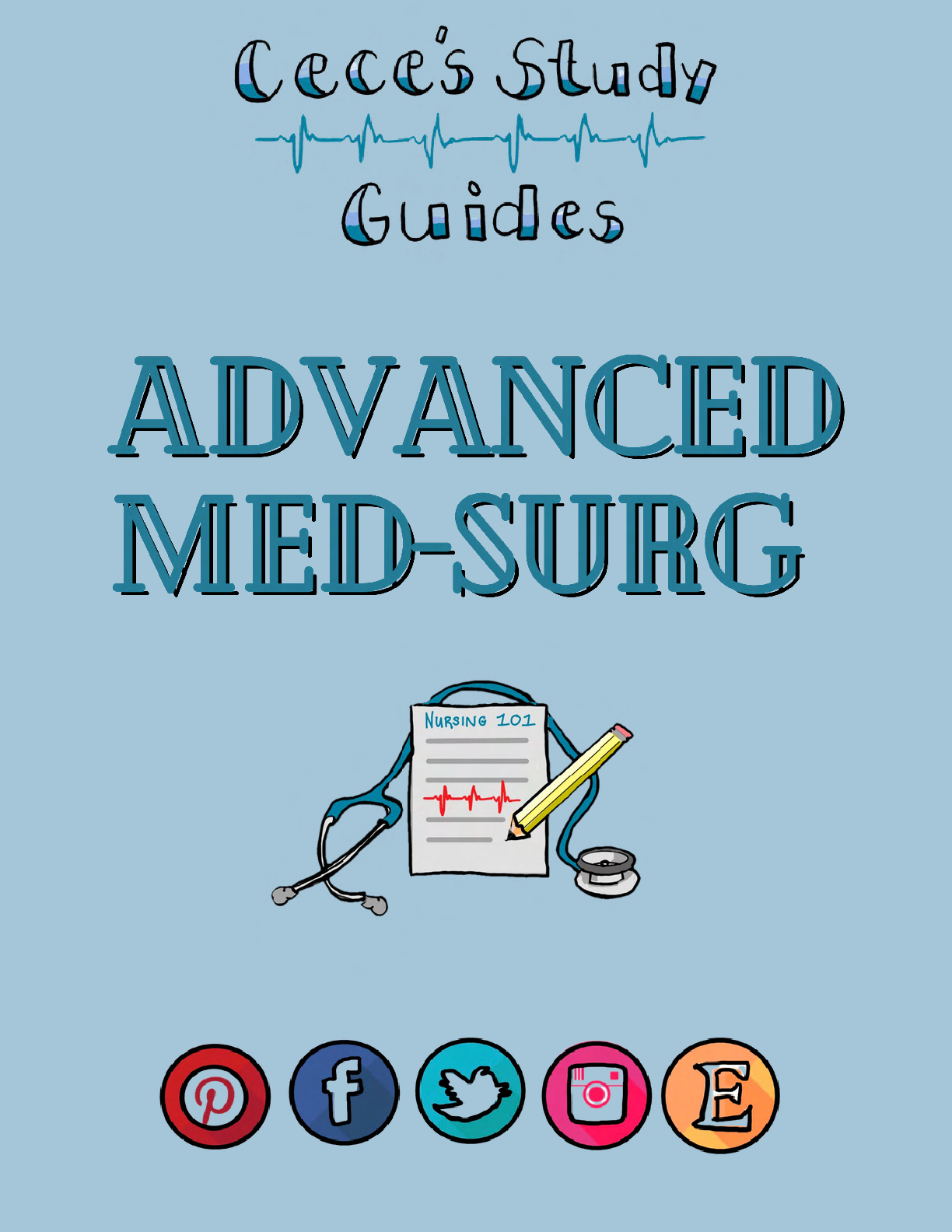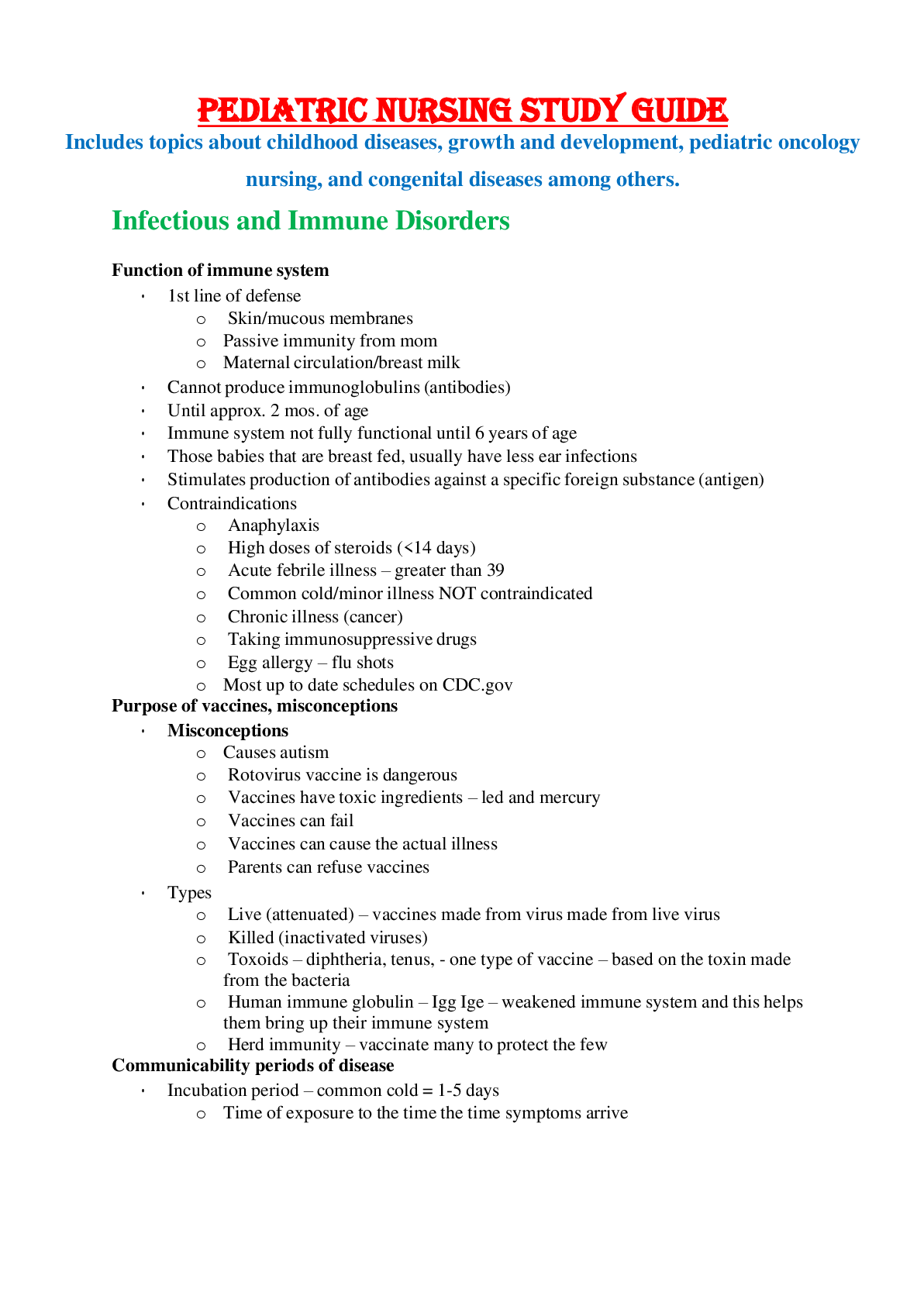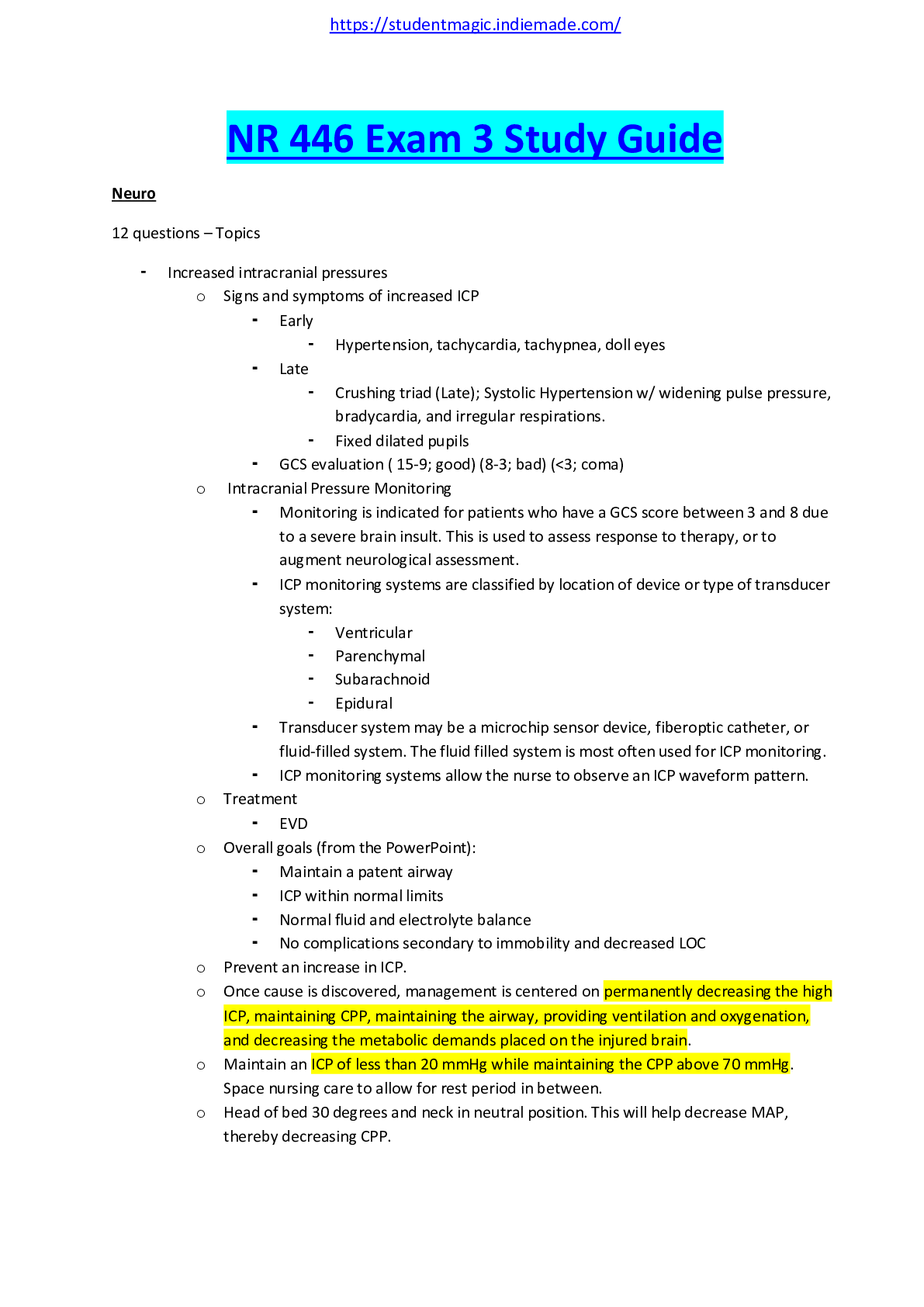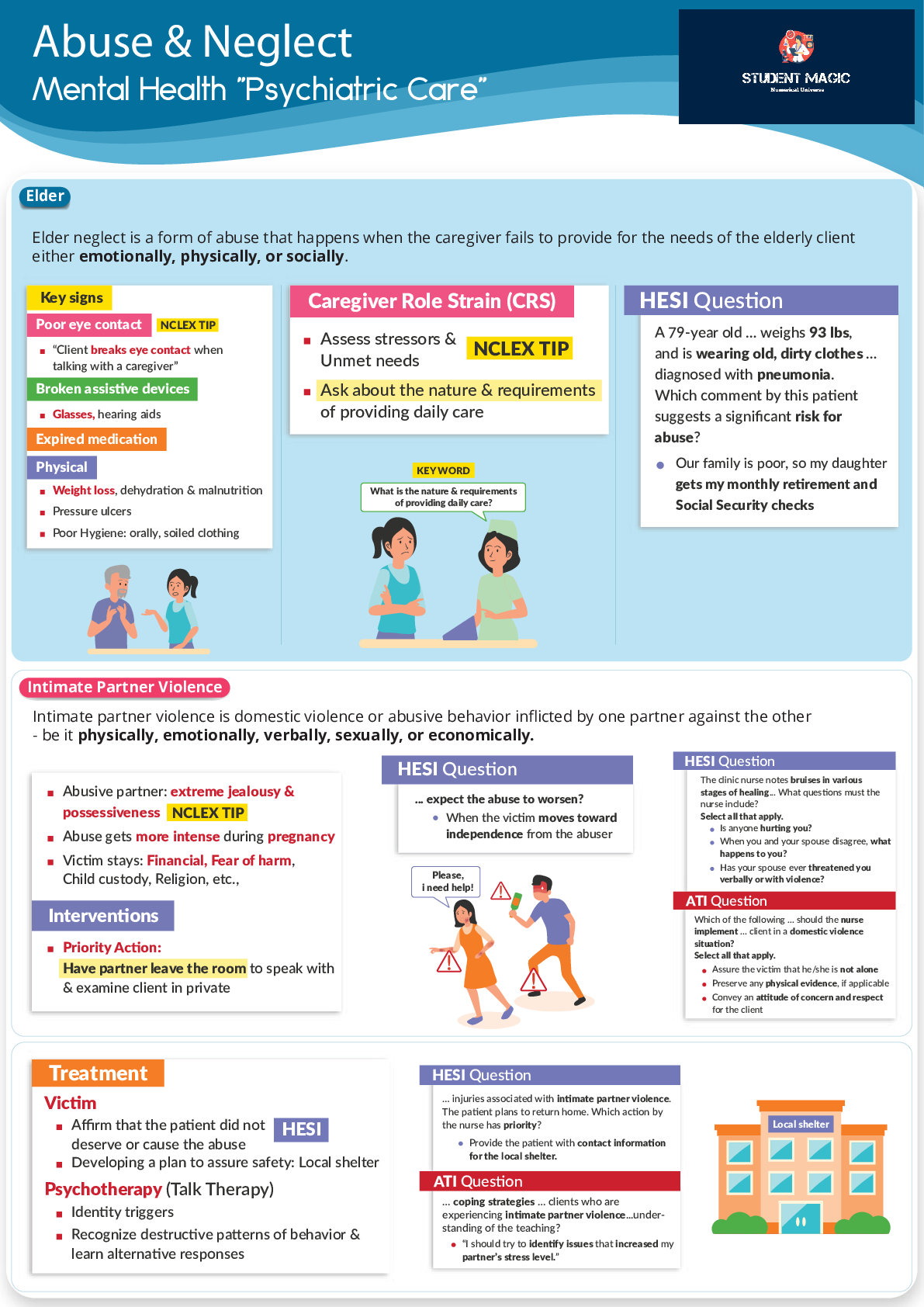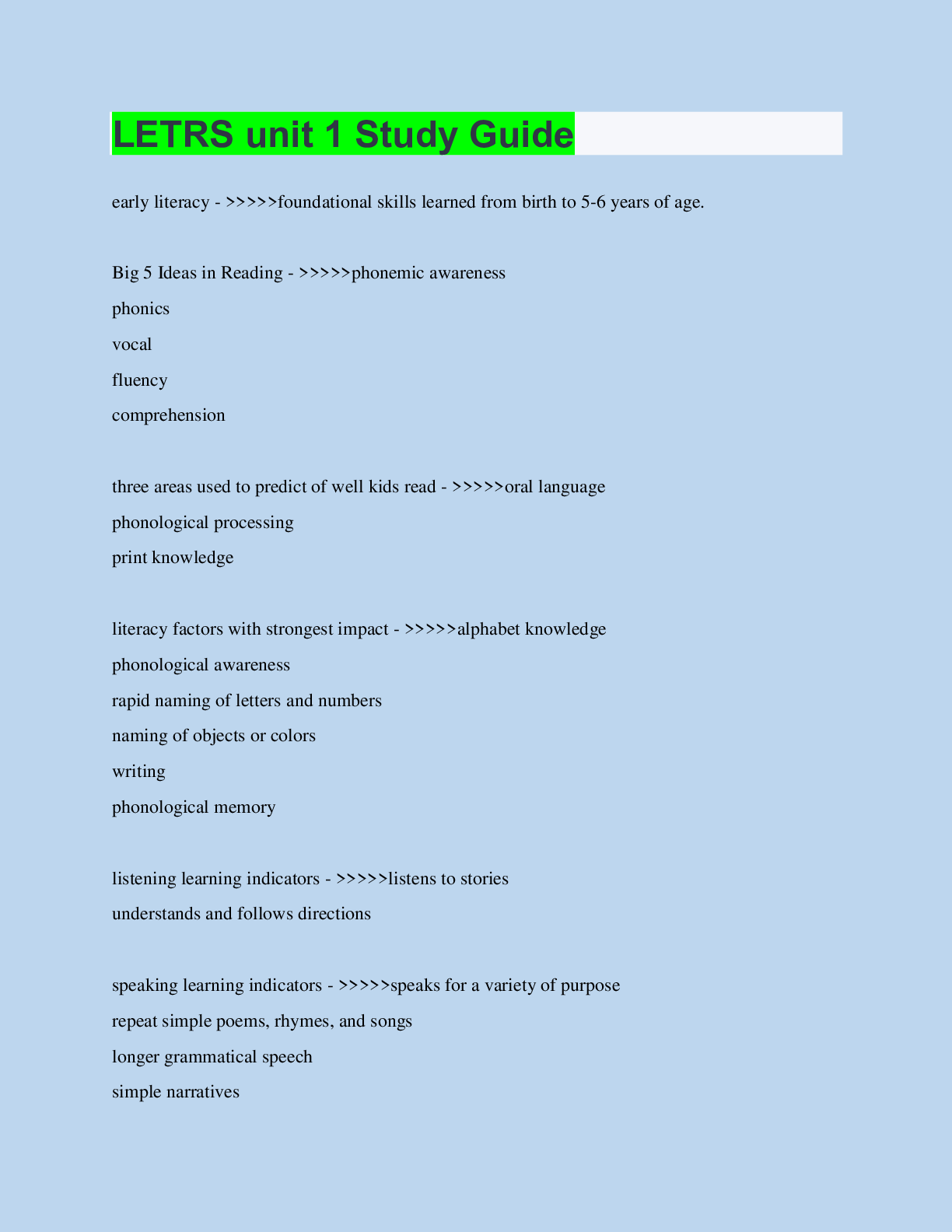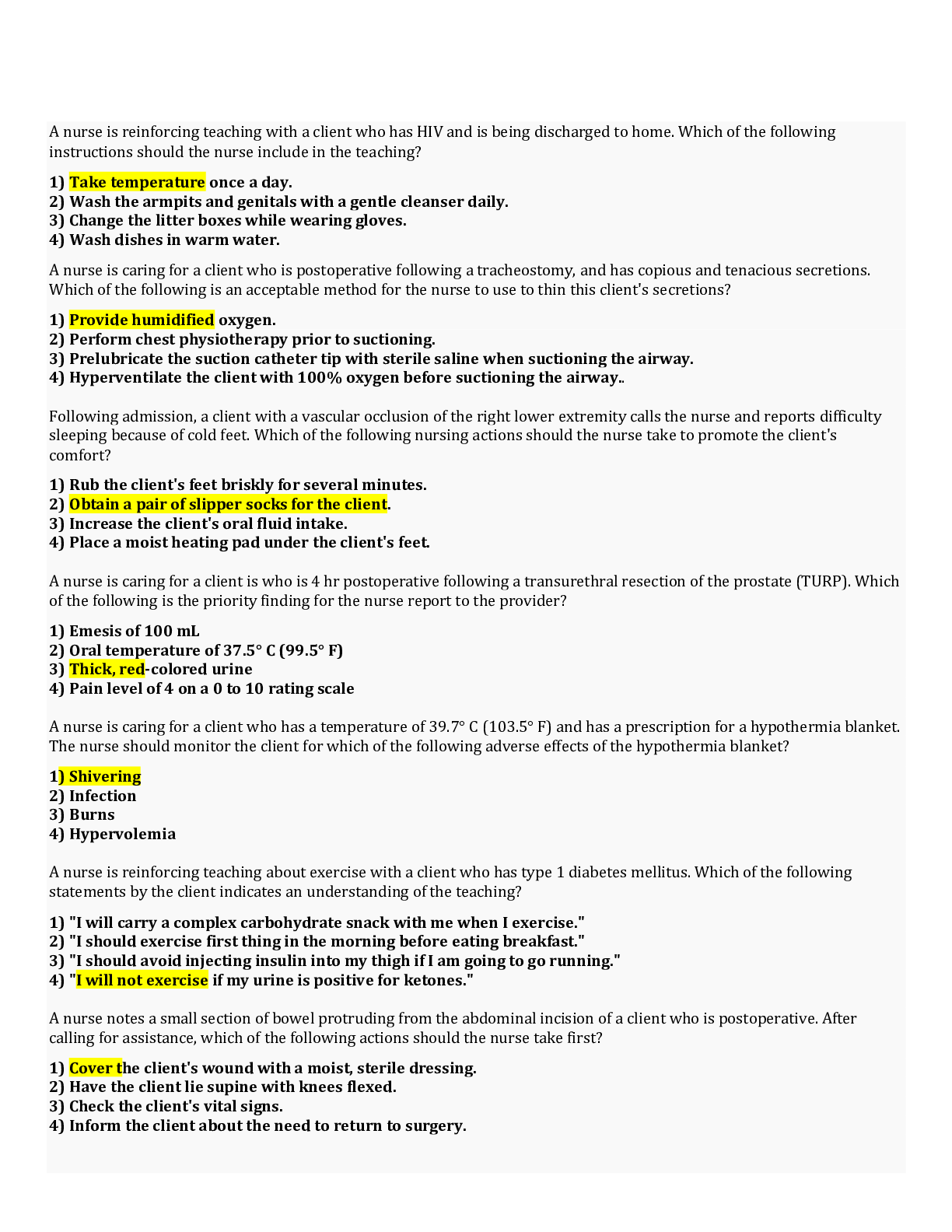*NURSING > STUDY GUIDE > Stahl's Essential Psychopharmacology Neuroscientific Basis and Practical Applications TESTBANK/Stahl (All)
Stahl's Essential Psychopharmacology Neuroscientific Basis and Practical Applications TESTBANK/Stahl's Essential Psychopharmacology Neuroscientific Basis and Practical Applications/Complete Test bank_Questions_answers_Rationales
Document Content and Description Below
Stahl's Essential Psychopharmacology Neuroscientific Basis and Practical Applications TESTBANK/Stahl's Essential Psychopharmacology Neuroscientific Basis and Practical Applications/Complete Test bank_... Questions_answers_Rationales/ 1. A patient with depression mentions to the nurse, My mother says depression is a chemical disorder. What does she mean? The nurses response is based on the theory that depression primarily involves which of the following neurotransmitters? a. Cortisol and GABA st ba n kt an d. Serotonin and norepinephrine ANS: D One possible cause of depression is thought to involve one or more neurotransmitters. Serotonin and norepinephrine have been found to be important in the regulation of depression. There is no research to support that the other options play a significant role in the development of depression. 2. A patient has experienced a stroke (cerebral vascular accident) that has resulted in damage to the Broca area. Which evaluation does the nurse conduct to reinforce this diagnosis? a. Observing the patient pick up a spoon Asking the patient to recite the alphabet c. Monitoring the patients blood pressure w .te b. w w d. Comparing the patients grip strength in both hands ANS: B Accidents or strokes that damage Brocas area may result in the inability to speak (i.e., motor aphasia). Fine motor skills, blood pressure control, and muscle strength are not controlled by the Broca area of the left frontal lobe. 3. The patient diagnosed with schizophrenia asks why psychotropic medications are always prescribed by the doctor. The nurses answer will be based on information that the therapeutic action of psychotropic drugs is the result of their effect on: a. The temporal lobe; especially Wernickes area b. Dendrites and their ability to transmit electrical impulses c. The regulation of neurotransmitters especially dopamine d. The peripheral nervous system sensitivity to the psychotropic medications k. co m ANS: C Medications used to treat psychiatric disorders operate in and around the synaptic cleft and have action at the neurotransmitter level, especially in the case of schizophrenia, on dopamine. The Wernickes area, dendrite function, or the sensitivity of the peripheral nervous system are not relevant to either schizophrenia or psychotropic medications. 4. A student nurse mutters that it seems entirely unnecessary to have to struggle with understanding the anatomy and physiology of the neurologic system. The mentor would base a response on the understanding that it is: Necessary but generally for psychiatric nurses who focus primarily on a. behavioral interventions A complex undertaking that advance practice psychiatric nurses frequently use in their practice c. Important primarily for the nursing assessment of patients with brain traumacaused cognitive symptoms an b. Necessary for planning psychiatric care for all patients especially those experiencing psychiatric disorders There have been no research studies done on stress and disease yet. w w b. w .te st ba n kt d. ANS: D Nurses must understand that many symptoms of psychiatric disorders have a neurologic basis, although the symptoms are manifested behaviorally. This understanding facilitates effective care planning. The foundation of knowledge is not used exclusively by advanced practice psychiatric nurses nor is it relevant for only behavior therapies or brain trauma since dealing with the results of normal and abnormal brain function is a responsibility of all nurses providing all types of care to the psychiatric patient. 5. A patient asks the nurse, My wife has breast cancer. Could it be caused by her chronic depression? Which response is supported by research data? a. Too much stress has been proven to cause all kinds of cancer. c. Stress does cause the release of factors that suppress the immune system. d. There appears to be little connection between stress and diseases of the body ANS: C Research indicates that stress causes a release of corticotropin-releasing factors that suppress the immune system. Studies indicate that psychiatric disorders such as mood disorders are sometimes associated with decreased functioning of the immune system. Research does not support a connection between many cancers and stress. There is a significant amount of research about stress and the body. Research has shown that there are some connections between stress and physical disease. 6. A patient who has a parietal lobe injury is being evaluated for psychiatric rehabilitation needs. Of the aspects of functioning listed, which will the nurse identify as a focus of nursing intervention? a. Expression of emotion b. Detecting auditory stimuli c. Receiving visual images kt an k. co m d. Processing associations ANS: D The parietal lobe is responsible for associating and processing sensory information that allows for functions such as following directions on a map, reading a clock, dressing self, keeping appointments, and distinguishing right from left. Emotional expression is associated with frontal lobe function. Detecting auditory stimuli is a temporal lobe function. Receiving visual images is related to occipital lobe function. 7. At admission, the nurse learns that some time ago the patient had an infarct in the right cerebral cortex. During assessment, the nurse would expect to find that the patient: a. Demonstrates major deficiencies in speech Is unable to effectively hold a spoon in the left hand c. Has difficulty explaining how to go about using the telephone ba n b. w w w .te st d. Cannot use his right hand to shave himself or comb his own hair ANS: B The cerebral hemispheres are responsible for functions such as control of muscles. The right hemisphere mainly controls the motor and sensory functions on the left side of the body. Damage to the right side would result in impaired function on the left side of the body. The motor cortex controls voluntary motor activity. Brocas area controls motor speech. Cognitive functions are attributed to the association cortex. The right side of the bodys motor activity is controlled by the left cerebral cortex. 8. A patient with chronic schizophrenia had a stroke involving the hippocampus. The patient will be discharged on low doses of haloperidol. The nurse will need to individualize the patients medication teaching by: a. Including the patients caregiver in the education b. Being careful to stress the importance of taking the medication as prescribed c. Providing the education at a time when the patient is emotionally calm and relaxed d. ANS: A Encouraging the patient to crush or dissolve the medication to help with swallowing m The hippocampus plays a major role in short-term memory and, hence, in learning. Taking the medication as prescribed and providing the education at a time when the patient is calm and relaxed is information or considerations that all patients should be given. The medication does not necessarily need to be crushed or dissolved since the stroke would not have caused difficulty with swallowing. 9. The physician tells the nurse, The medication Im prescribing for the patient enhances the g-aminobutyric acid (GABA) system. Which patient behavior will provide evidence that the medication therapy is successful? a. The patient is actively involved in playing cards with other patients. The patient reports that, I dont feel as anxious as I did a couple of days ago. c. The patient reports that both auditory and visual hallucinations have decreased. k. co b. ba n kt an d. The patient says that, I am much happier than before I came to the hospital. ANS: B GABA is the principle inhibitory neurotransmitter. The medication should provide an antianxiety effect. Alertness, psychotic behaviors, and mood elevation are not generally affected by g-aminobutyric acid. 10. The patients family asks whether a diagnosis of Parkinsons disease creates an increased risk for any mental health issues. What question would the nurse ask to assess for such a comorbid condition? a. Has your father exhibited any signs of depression? Does your father seem to experience mood swings? c. Have you noticed your father talking about seeing things you cant see? st b. w w w .te d. Is your dad preoccupied with behaviors that he needs to repeat over and over? ANS: A Serotonin and its close chemical relatives, dopamine and norepinephrine, are the neurotransmitters that are most widely involved in various forms of depression. Most researchers agree that the immediate cause of parkinsonism is a deficiency of dopamine and so a patient with Parkinsons disease should be monitored for depression, The other mental health disorders (bipolar disorder, hallucinations, and obsessive compulsive disorder) have not been connected to Parkinsons disease. 11. Which explanation for the prescription of donepezil (Aricept) would the nurse provide for a patient in the early stage of Alzheimers disease? a. It will increase the metabolism of excess GABA. b. Excess dopamine will be prevented from attaching to receptor sites. c. Serotonin deficiency will be managed through a prolonged reuptake period. d. The acetylcholine deficiency will be managed by inhibiting cholinesterase. ANS: D m Decreased levels of acetylcholine are thought to produce many of the behavioral symptoms of Alzheimers disease. The inhibiting action the drug has on cholinesterase will slow down the breakdown of acetylcholine and so delay the onset of symptoms. The other neurotransmitters (GABA, dopamine, and serotonin) are not currently believed to play a role in Alzheimers disease. 12. There remains a stigma attached to psychiatric illnesses. The psychiatric nurse makes the greatest impact on this sociological problem when: a. Providing educational programming for patients and the public Arranging for adequate and appropriate social support for the patient c. Assisting the patient to achieve the maximum level of independent functioning k. co b. Regularly praising the patient for seeking and complying with appropriate treatment st ba n kt an d. ANS: A Much of the stigma attached to psychiatric illness is due to a lack of understanding of the biologic basis of these disorders. Therefore, effective patient, family, and public teaching is an important function of the role of the psychiatric mental health nurse. While the remaining options are appropriate, they are not directed towards eliminating social stigma but rather empowering the patient. 13. The wife of a patient with paranoid schizophrenia tells the nurse, Ive learned that my husband has several close relatives with the same disorder. Does this problem run in families? The response based on recent discoveries in the field of genetics would be: a. Your children should be monitored closely for the disorder. Research tends to support a familiar tendency to schizophrenia. c. There is no concrete evidence; it is just as likely a coincidence. w .te b. w w d. Only bipolar disorder has been identified to have a genetic component. ANS: B Familial tendencies appear with several psychiatric disorders including schizophrenia. To insinuate that the children are at such risk would not be supported by research. 14. A patient whose symptoms of mild depression have been managed with antidepressants is concerned about the affect of accepting a promotion that will require working the night shift. What will be the basis of the response the nurse gives to address the patients concern? a. The connection between a new job and possible depression does exist. b. The medication can be adjusted to manage any increase in depression. c. The interruption in normal wake-sleep patterns can influence mood disorders. The change in sleep routine can be managed with a healthy sleep hygiene routine. k. co m d. ANS: C Many psychiatric and medical disorders occur more frequently or are exacerbated when sleep patterns and biologic rhythms are disrupted. While the remaining options contain true information regarding the management of depression that is a result of sleep disruption, they do not effectively address the patients concern. 15. The nurse is discouraged because the patient exhibiting negative symptoms of schizophrenia has shown no improvement with the planned interventions to reduce the symptoms. The mentors remark that helps place the problem in perspective is: a. You arent responsible for the behavior of any other person. b. Patients can be perverse and cling to symptoms despite our efforts. c. Negative symptoms have been associated with genetic pathology. b. c. Uncharacteristically aggressive Affect fluctuates [Show More]
Last updated: 1 year ago
Preview 1 out of 86 pages
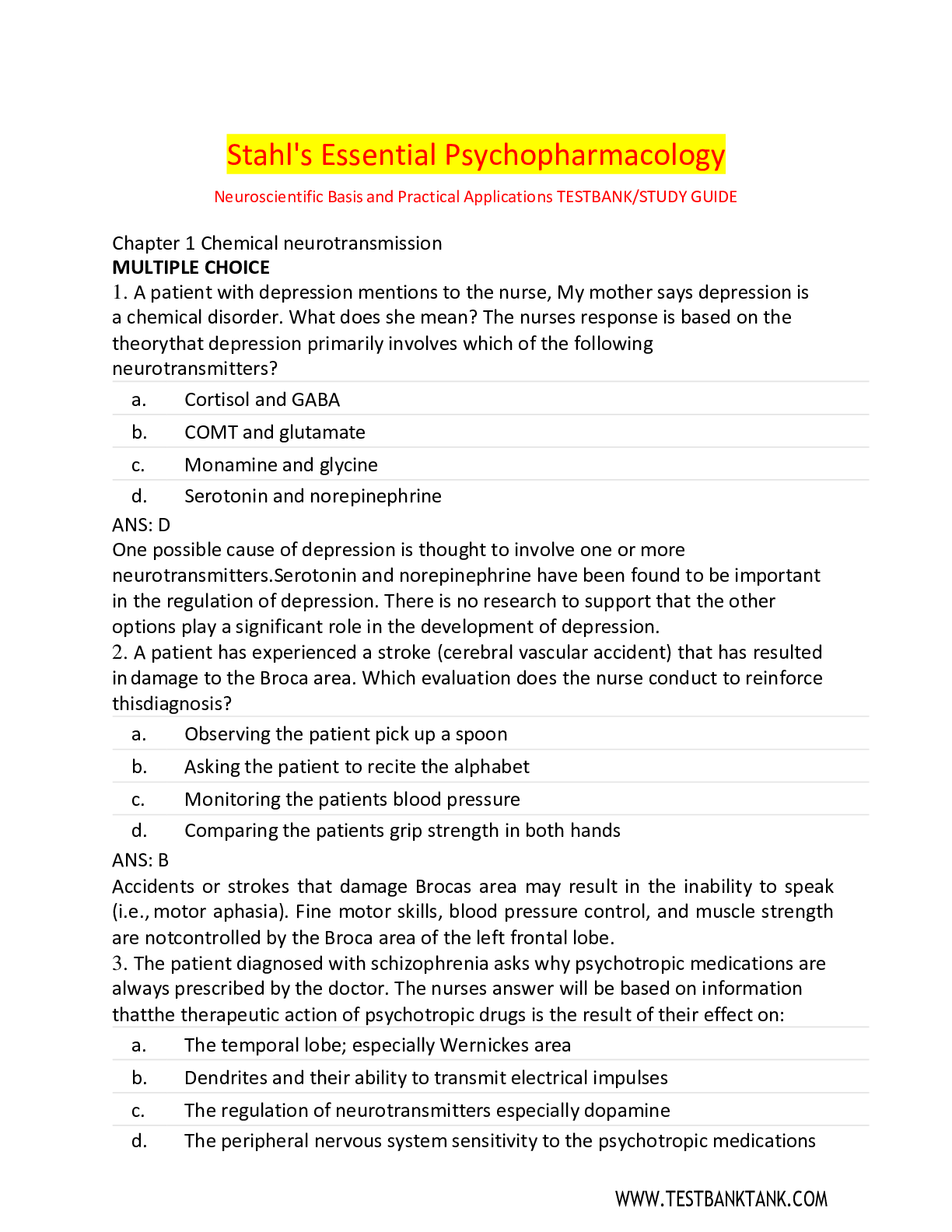
Reviews( 0 )
Document information
Connected school, study & course
About the document
Uploaded On
Apr 19, 2021
Number of pages
86
Written in
Additional information
This document has been written for:
Uploaded
Apr 19, 2021
Downloads
1
Views
58

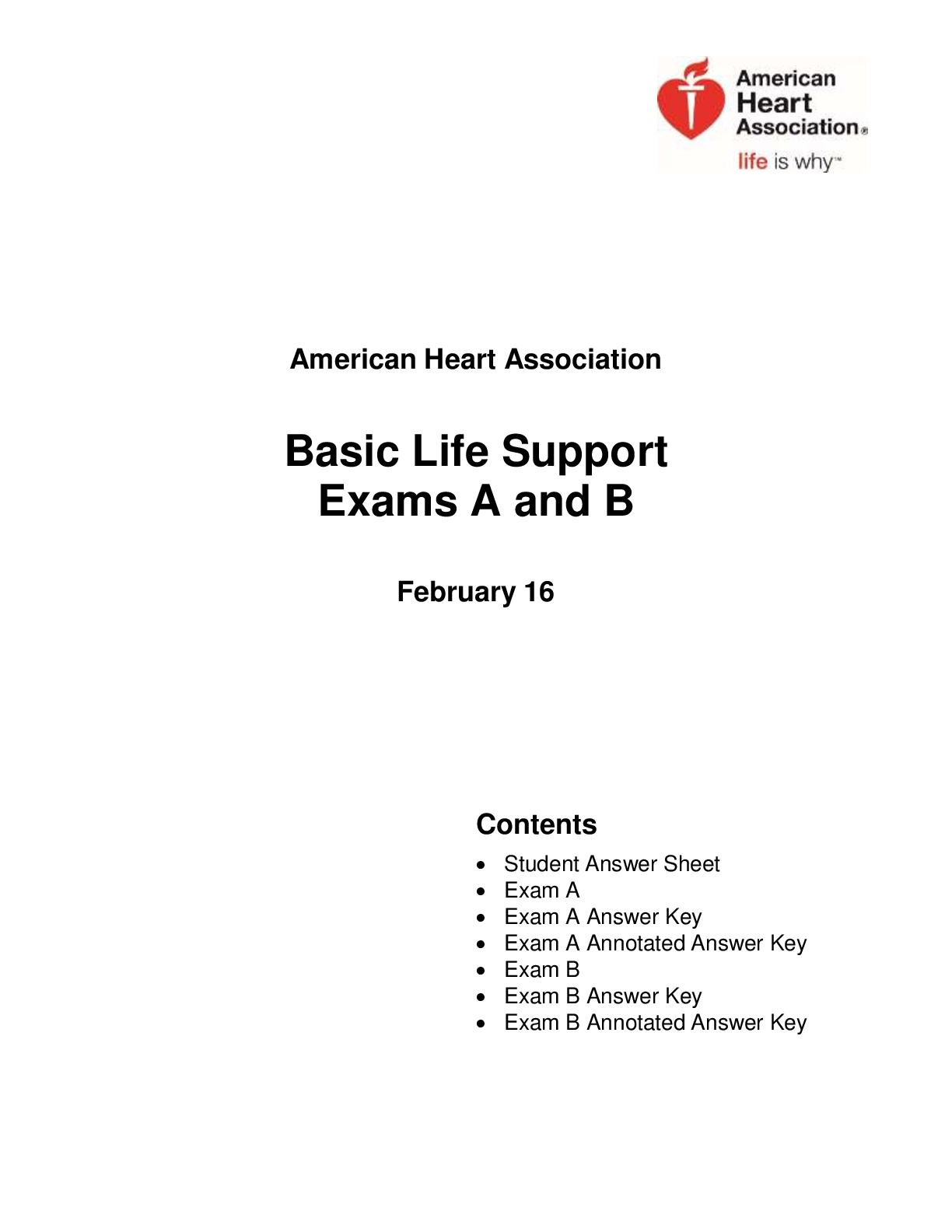


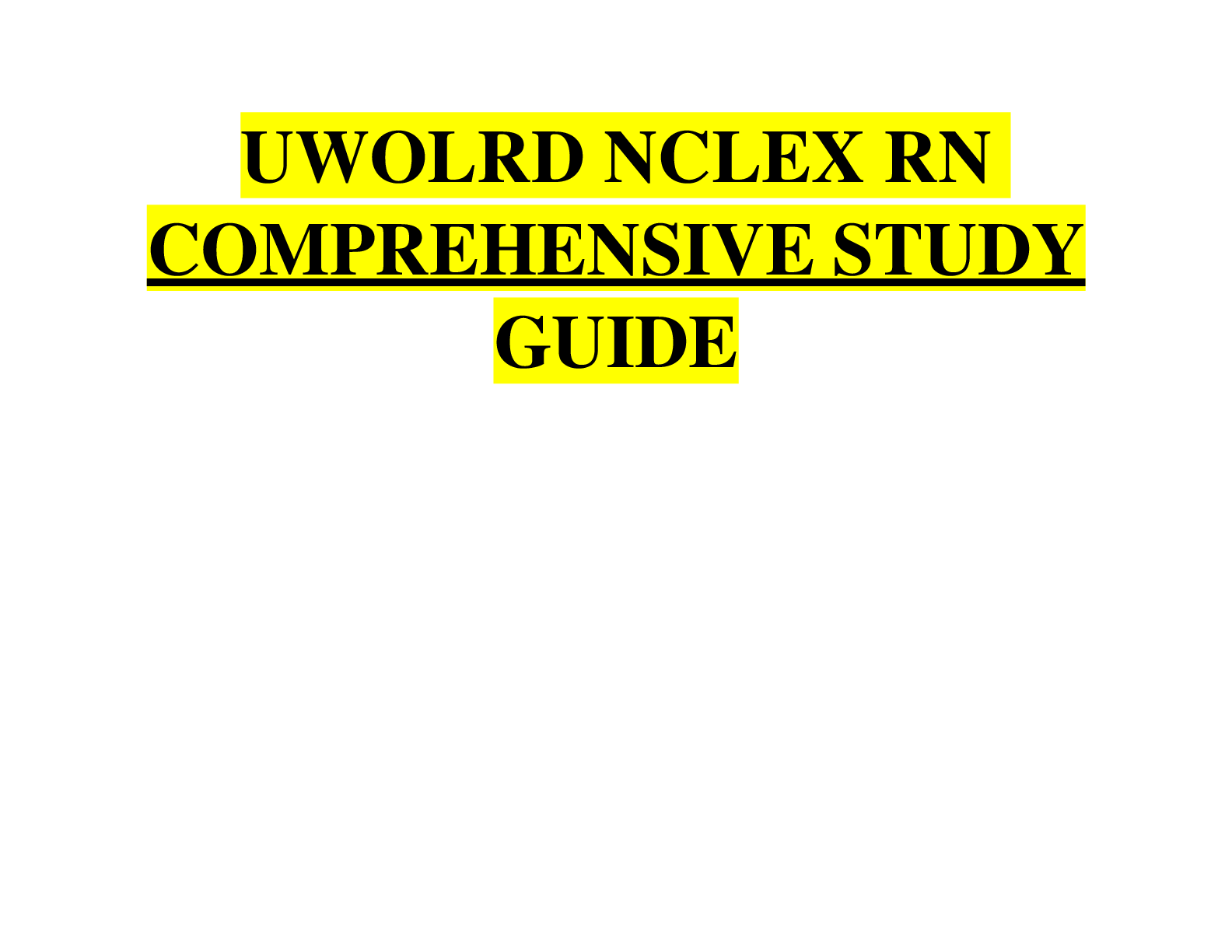
.png)

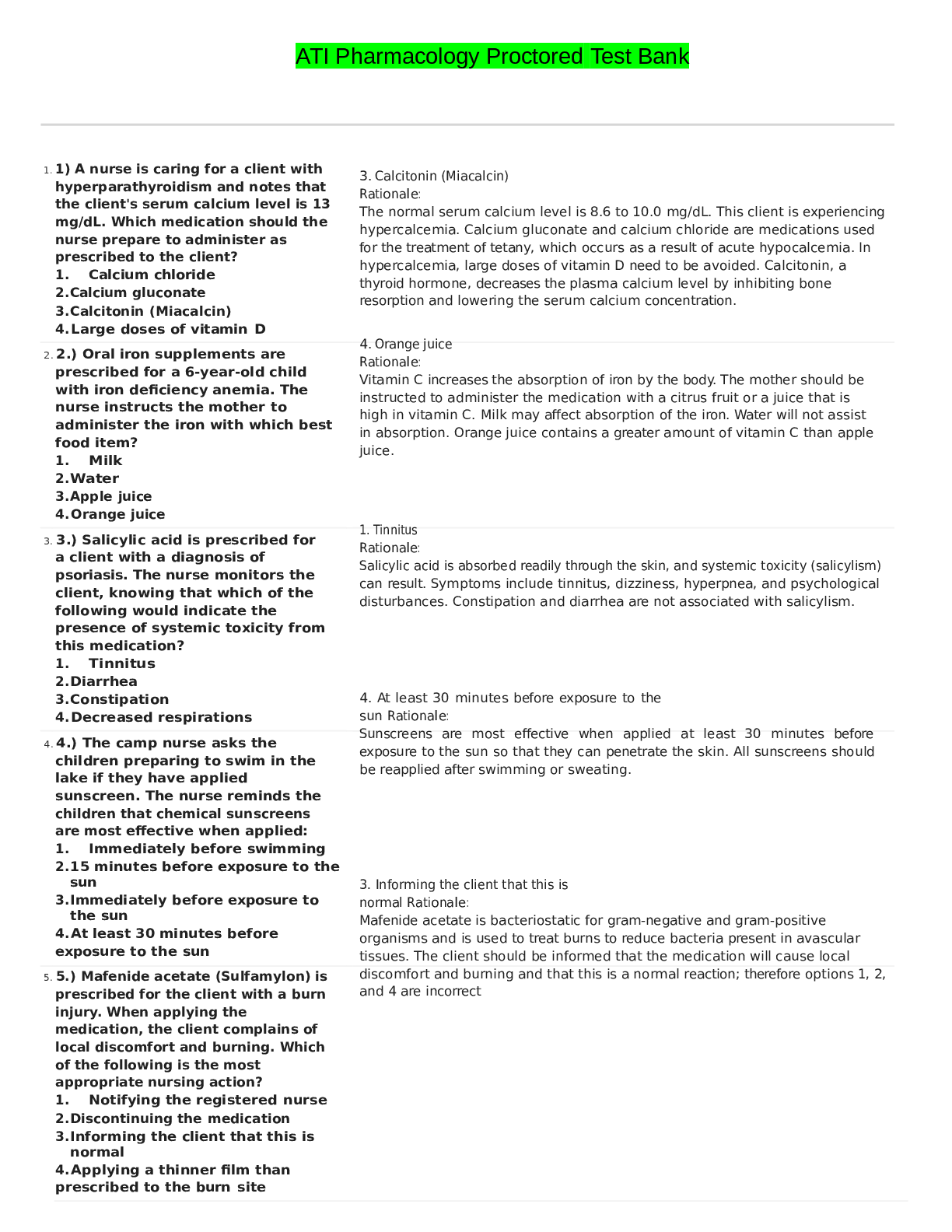
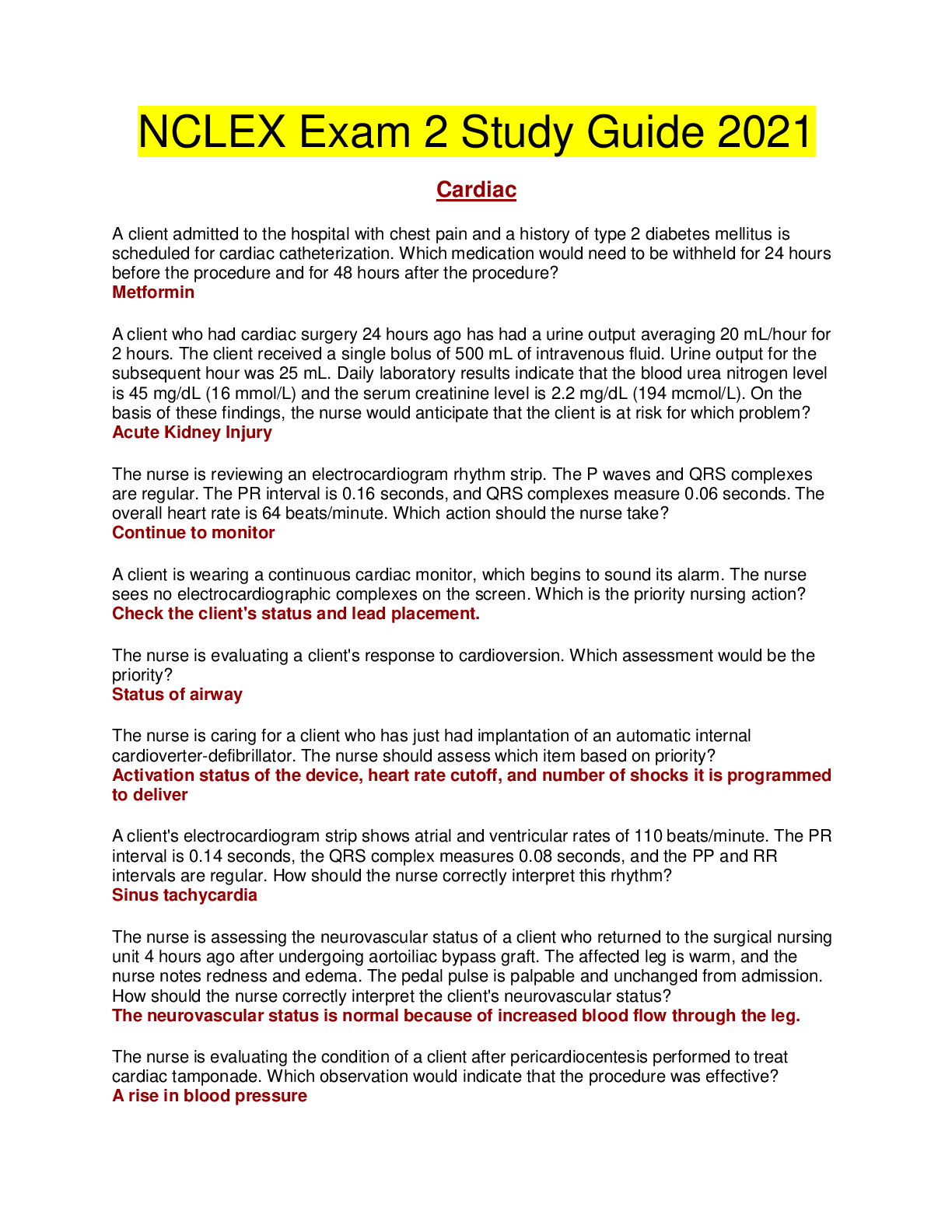


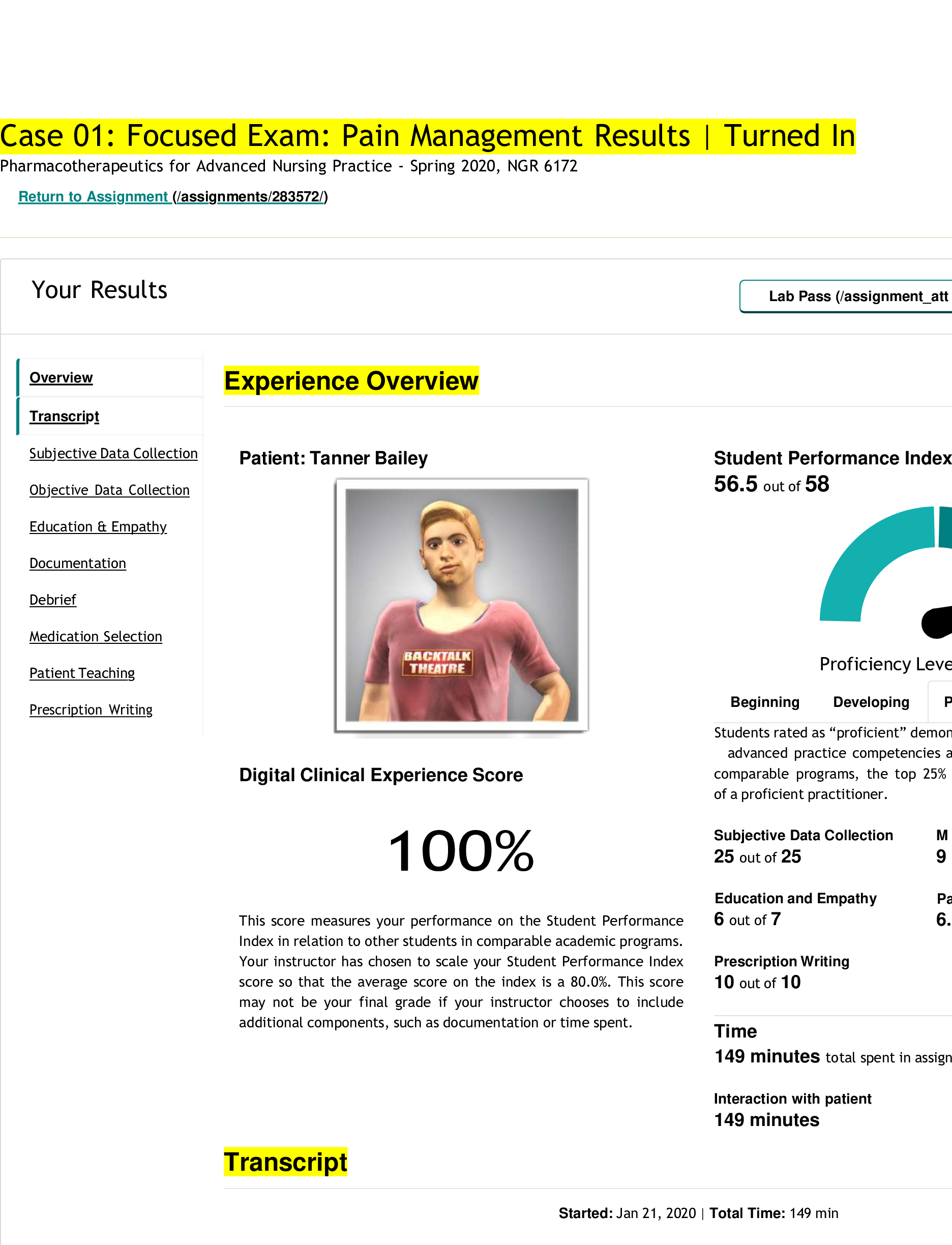
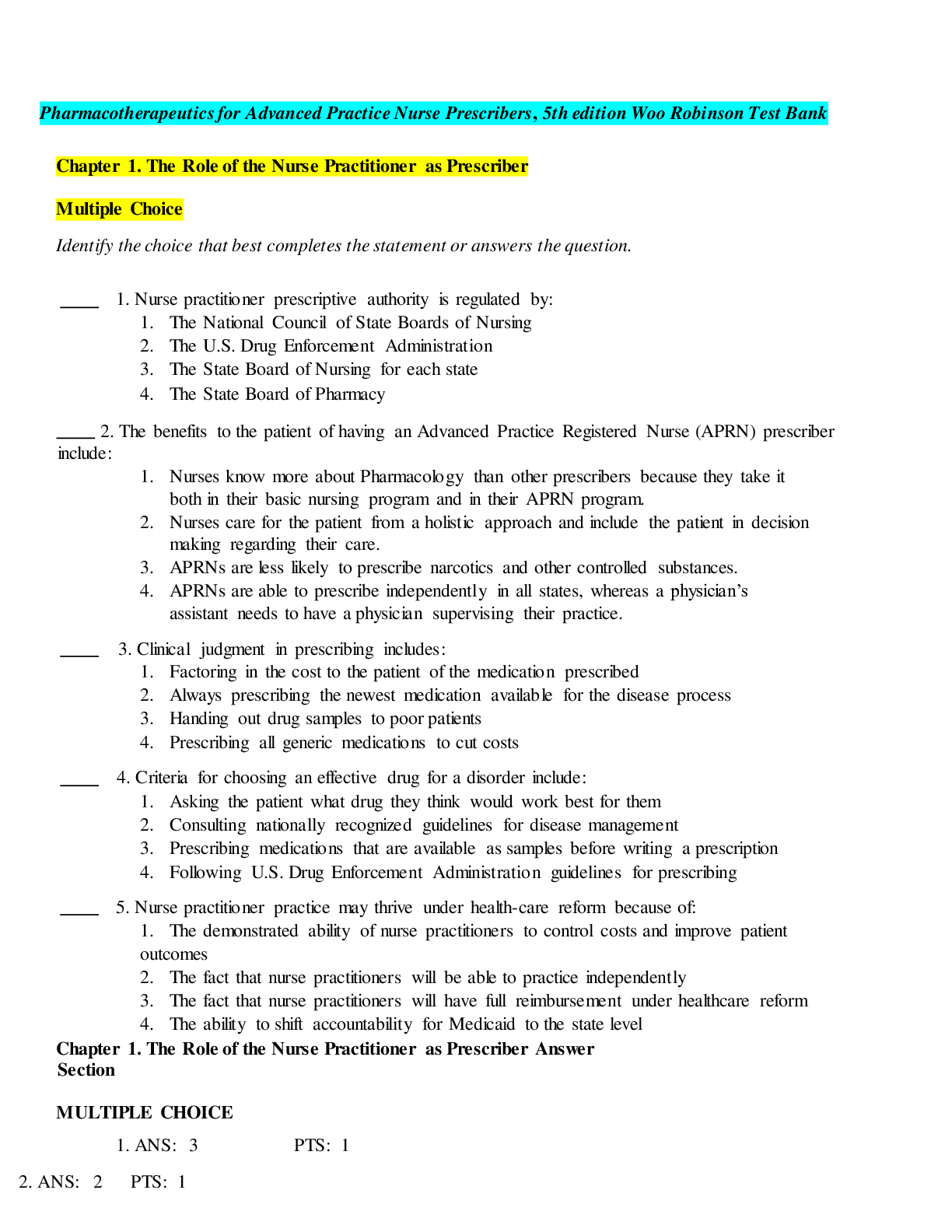
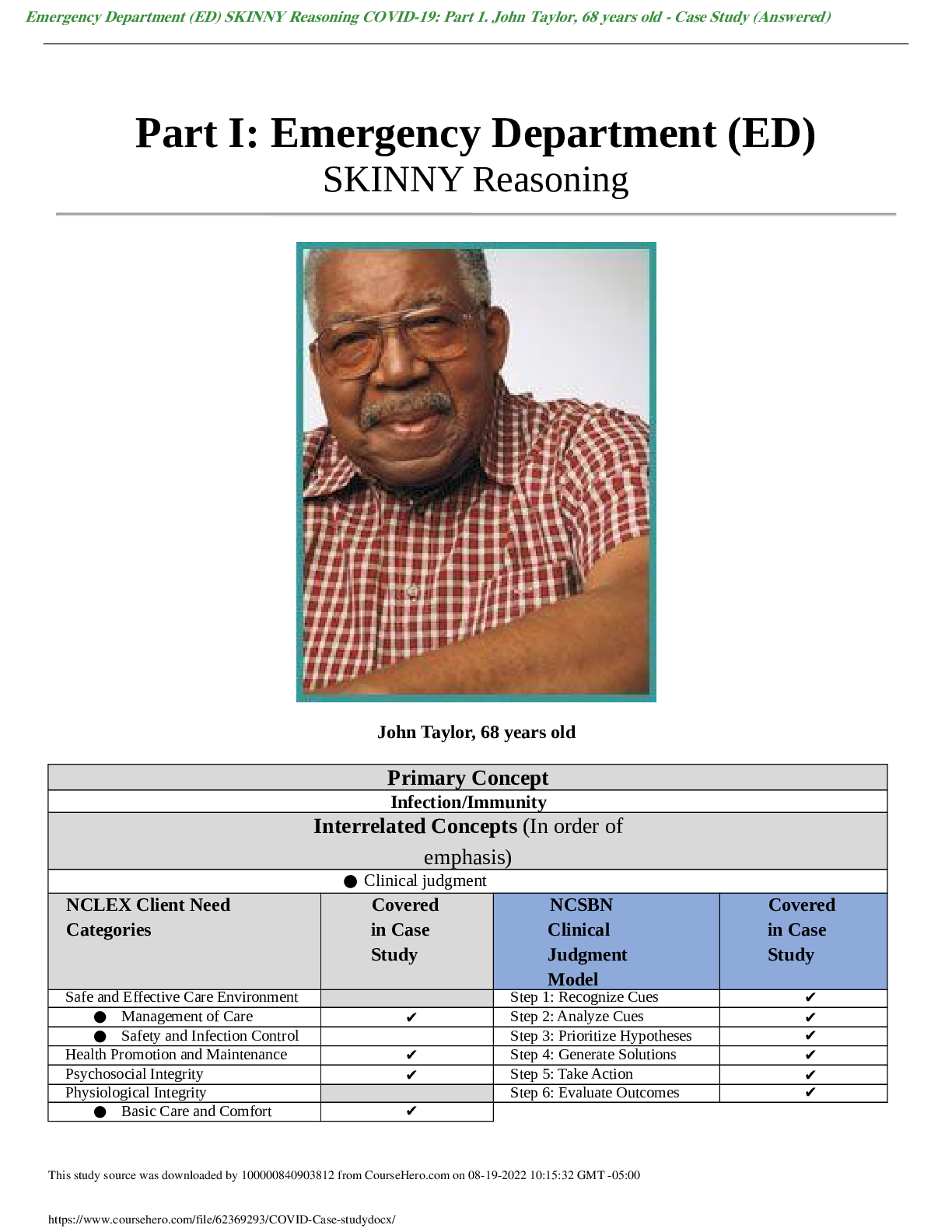
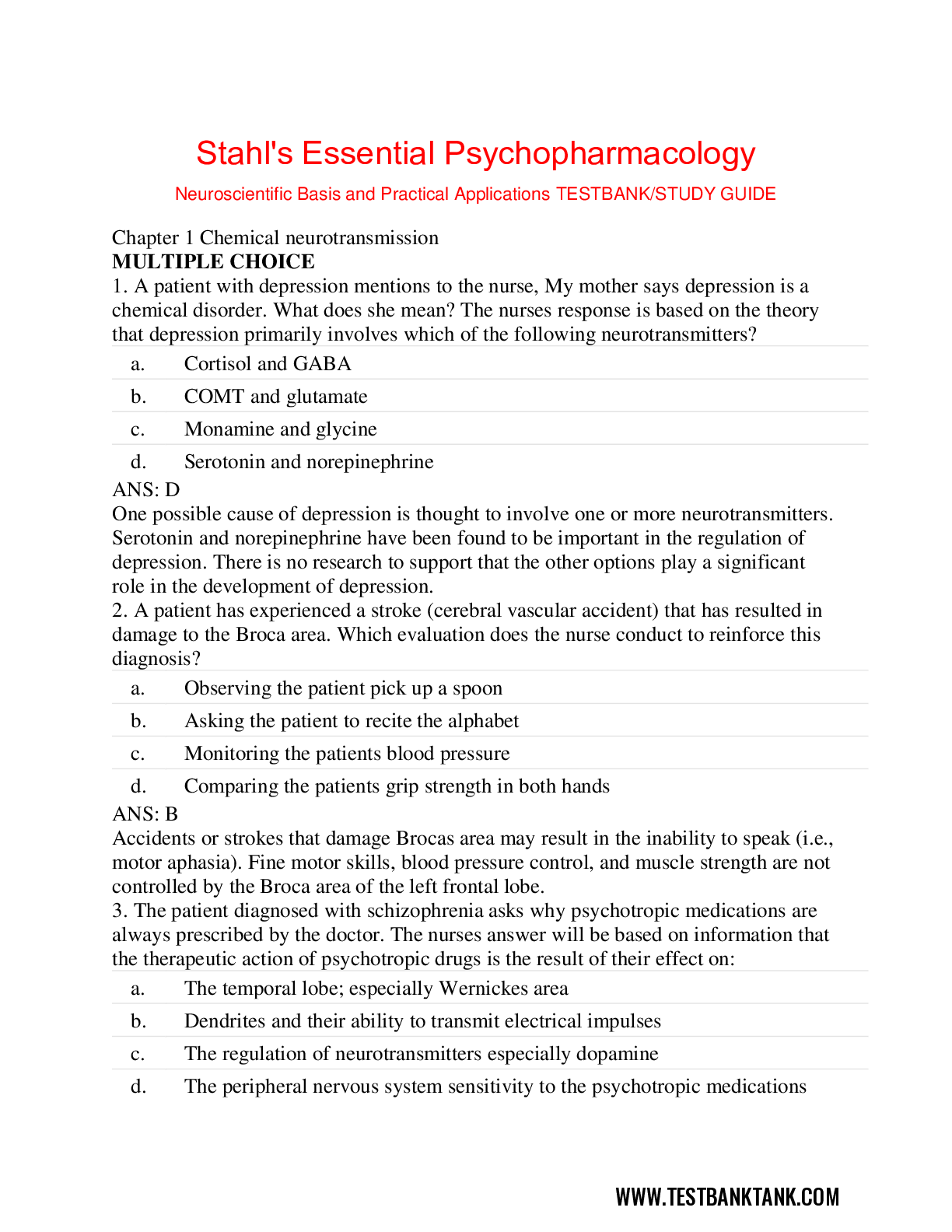

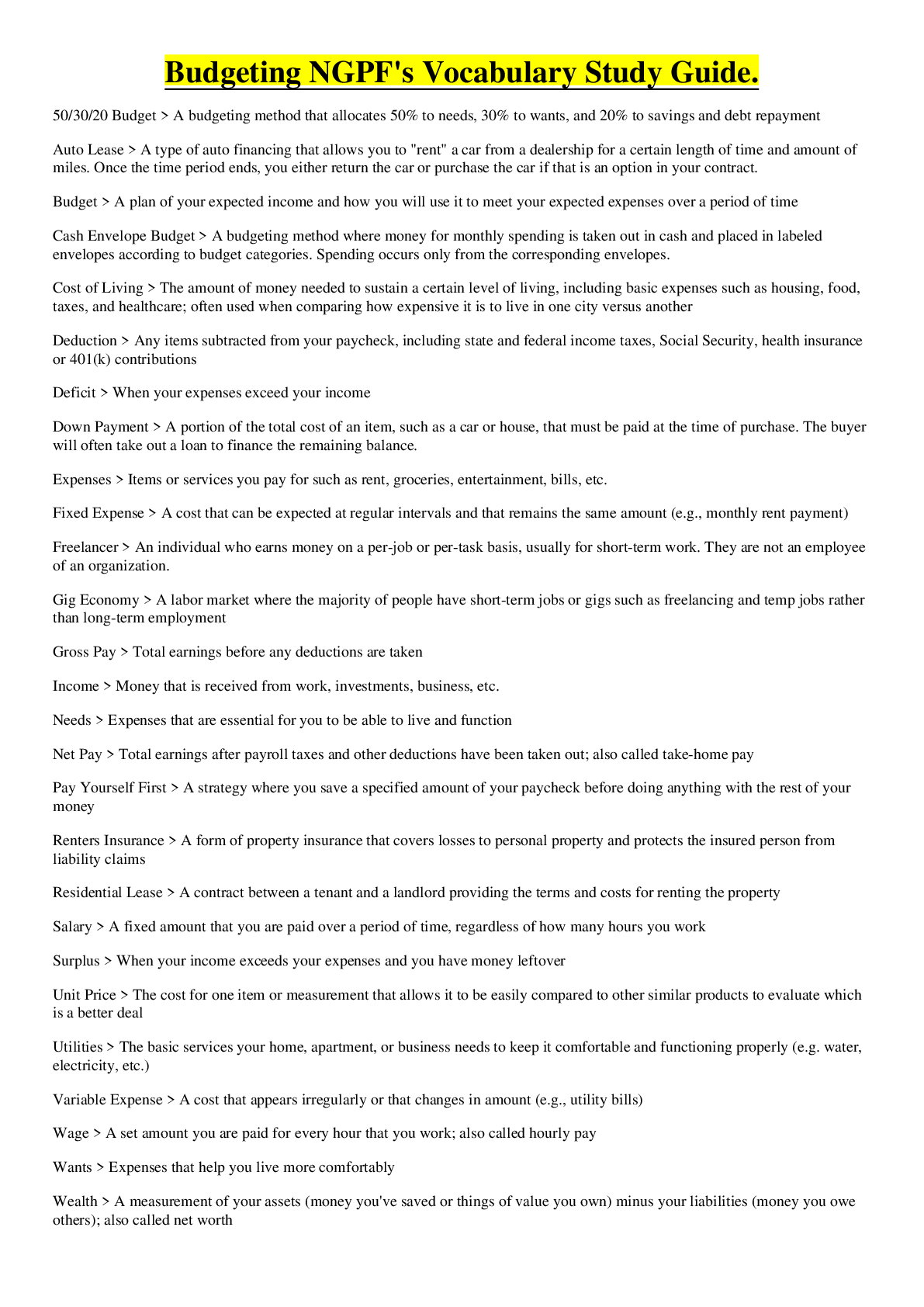

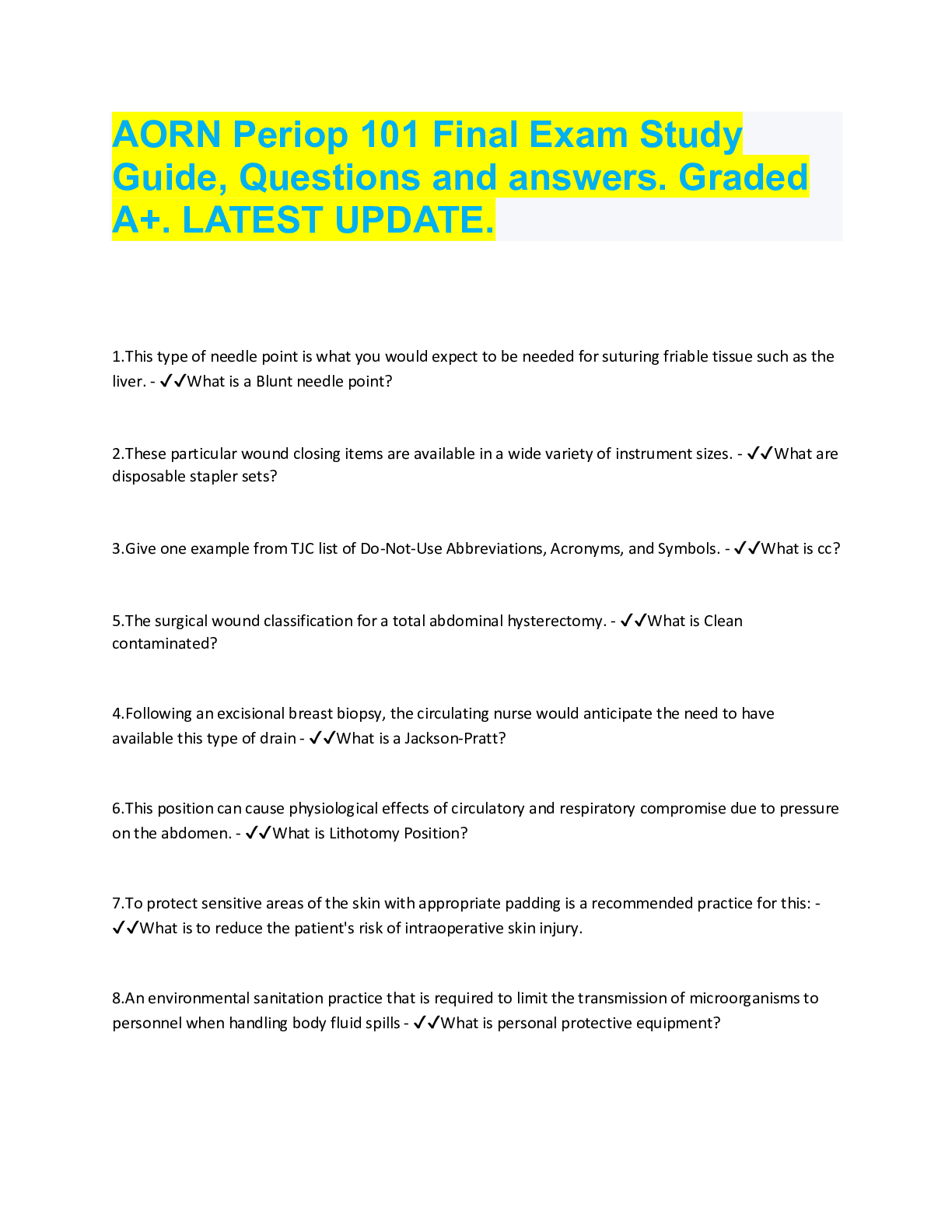
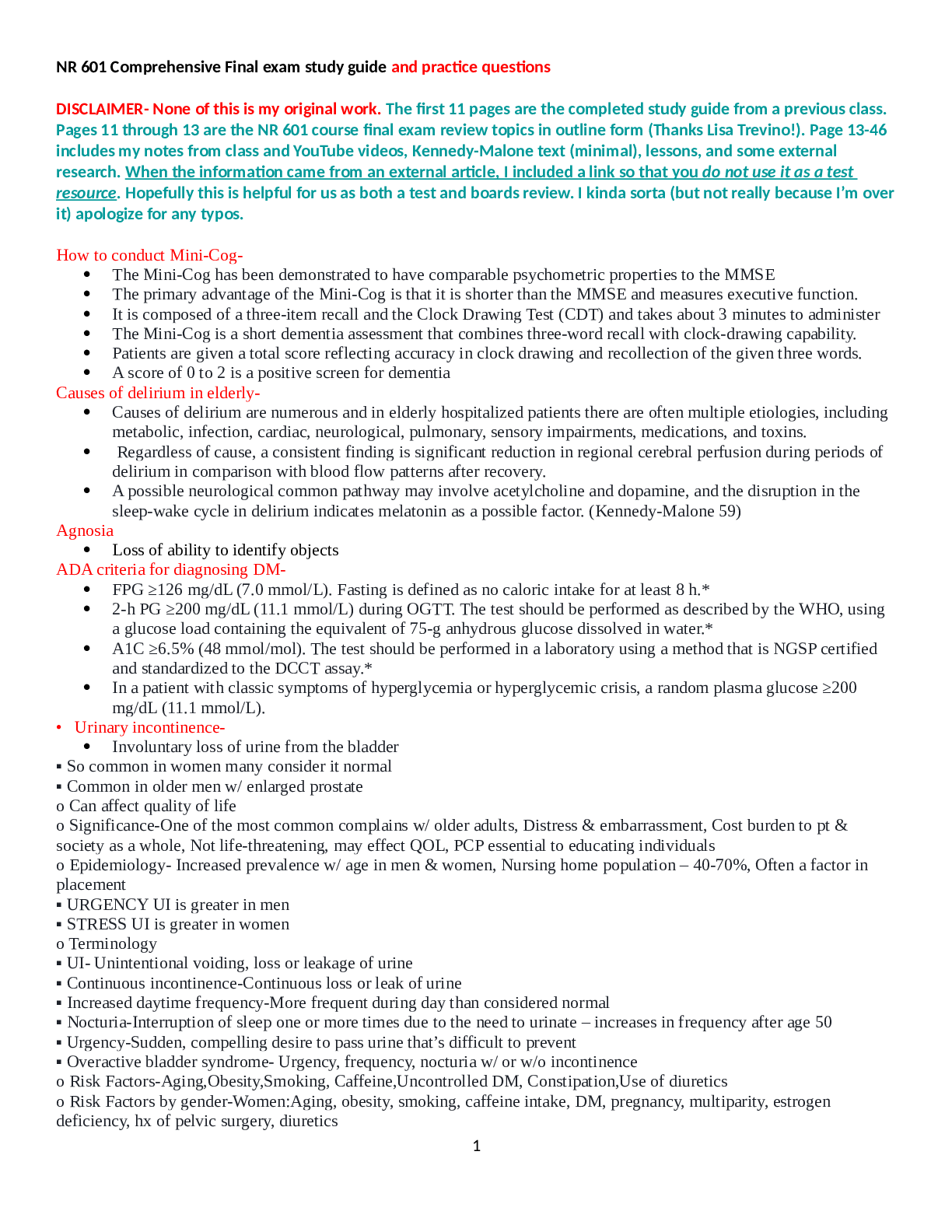



.png)

